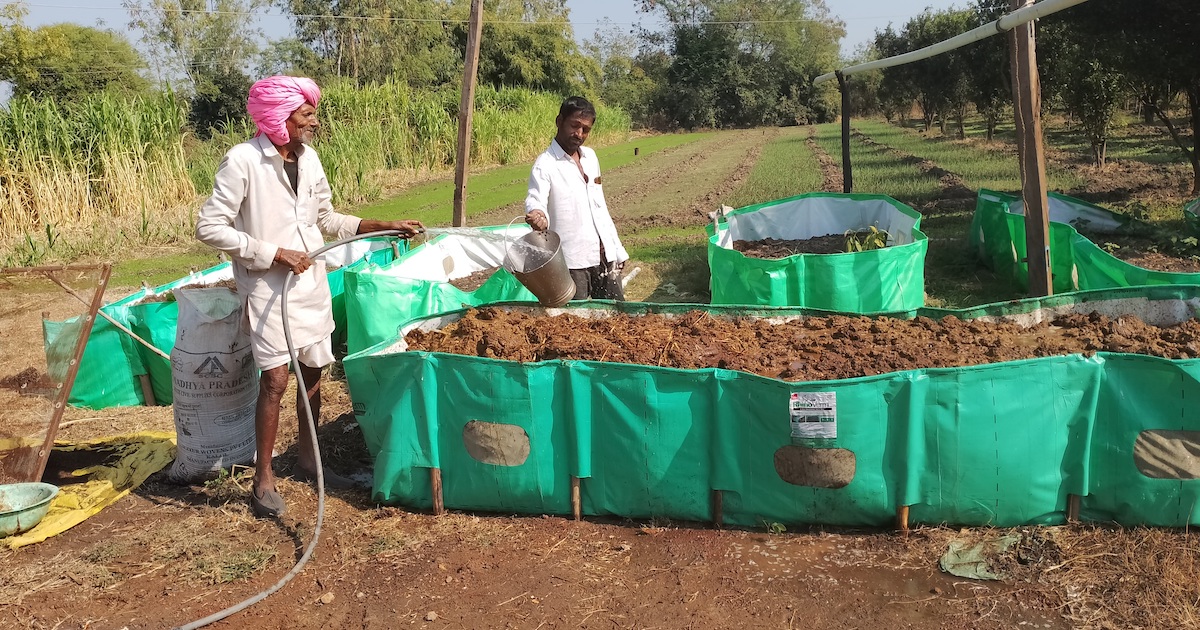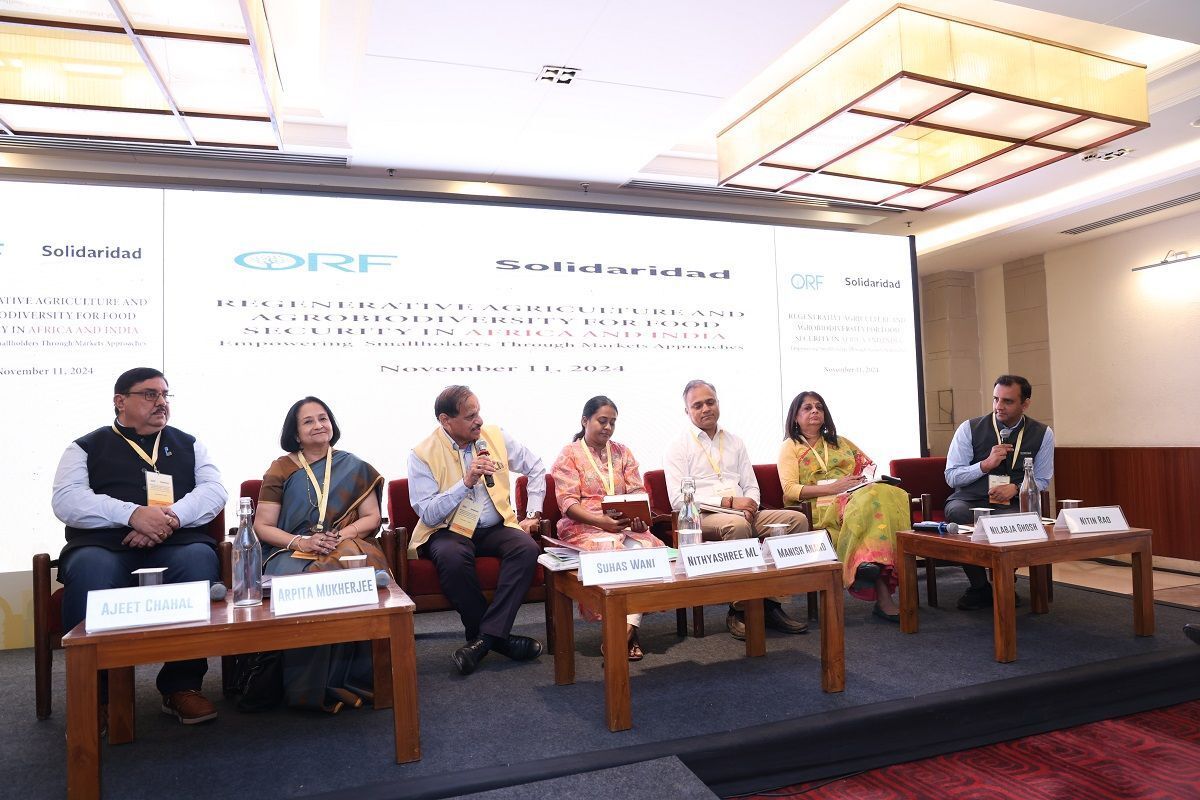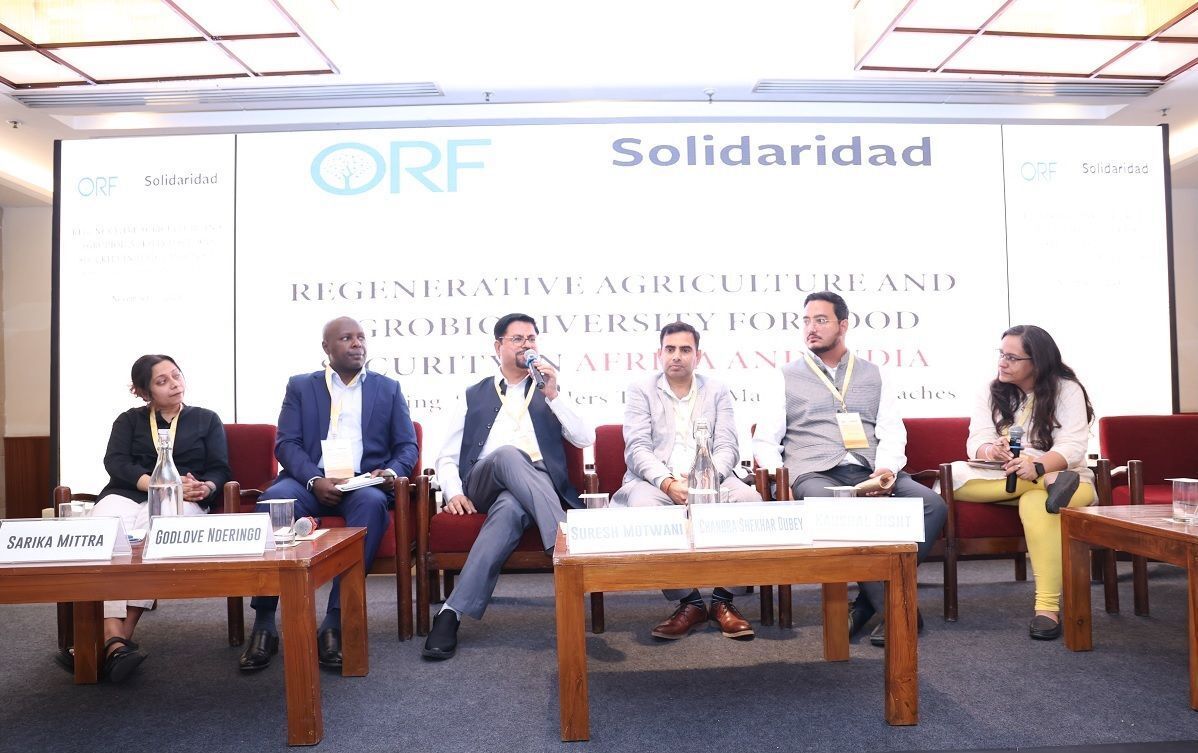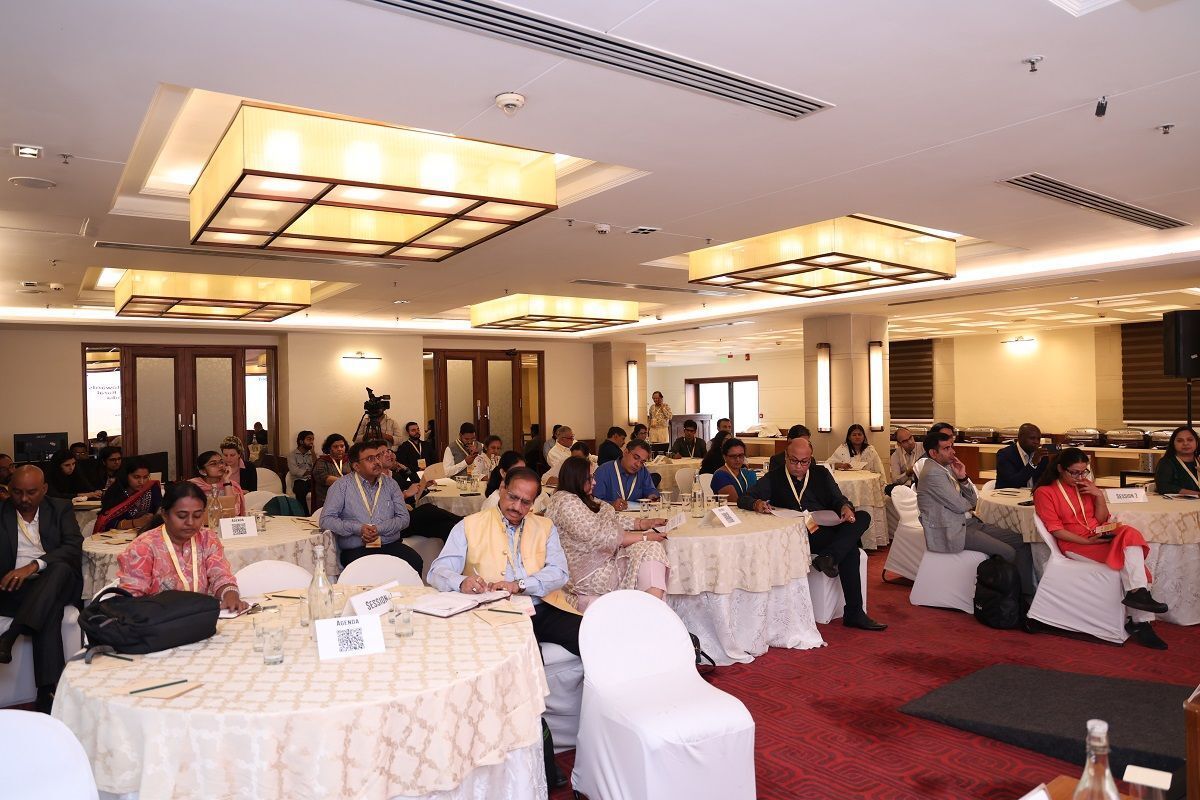Farmers prepare a vermicompost bed. Vermicomposting is among a range of regenerative practices introduced to smallholders in central India.
A policy brief for the T20 engagement group, jointly authored by Solidaridad and the Observer Research Foundation, highlights food and nutrition insecurity in India and Africa, and offers possible solutions and key recommendations to the G20 countries.
The lack of agricultural biodiversity — described as the vast array of plants, animals and microorganisms utilized in agriculture and food production — threatens the nutritional security of nearly 3 billion people in India and Africa. As such, we are faced with an unprecedented and staggering nutrition crisis.
In India, approximately 224.3 million people are undernourished, while in Africa, the number stands at 278 million. These numbers underscore the importance and the need to address food insecurity and malnutrition through systems that promote agricultural biodiversity, diversified and regenerative farming practices, and improved access to nutritious foods for all segments of society.
Agrobiodiversity as an Approach
The T20 Policy Brief for G20 Brazil 2024 is titled Agrobiodiversity as an Approach towards Food and Nutrition Security for Rural Communities in Africa and India. The brief is jointly authored by Solidaridad and Observer Research Foundation (ORF), a global research-based think-tank, and posits agrobiodiversity as a crucial component of interventions to address the nutritional needs of India and Africa.
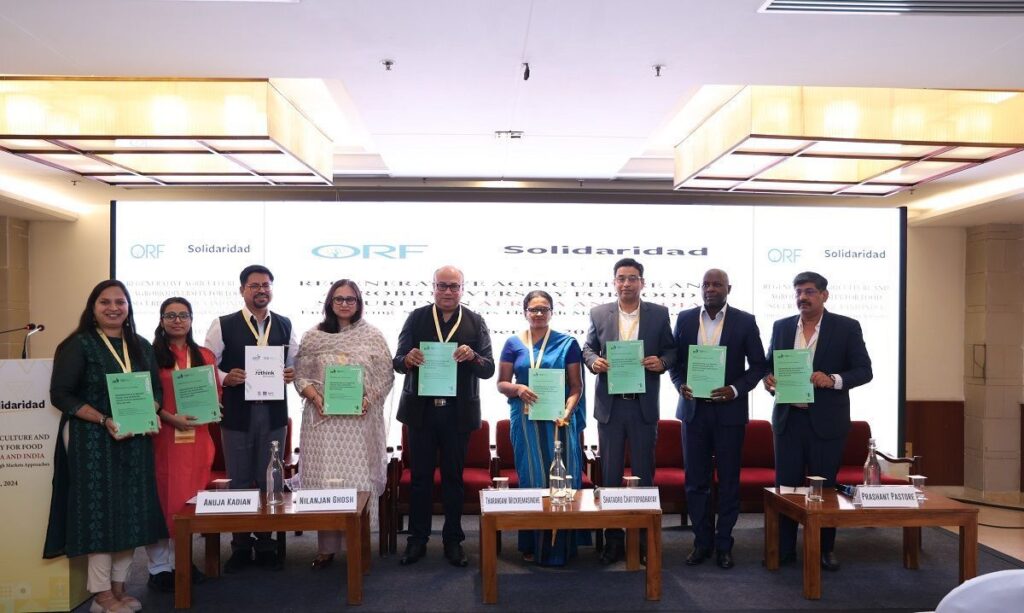
The policy paper draws upon Solidaridad’s on-farm case studies in India (soy-based cropping systems in central India) and Africa (coffee farming in Tanzania). These case studies illustrate the benefits of agrobiodiversity and regenerative agricultural approaches, which include ensuring optimal health outcomes and contributions to ecosystem resilience and sustainability.
However, the implementation of agrobiodiverse approaches faces challenges, such as the expansion of industrial agriculture, prevalence of monoculture, land degradation, loss of traditional knowledge and climate change.
The connection [between small farmers and land and water] is not just an economic one – it is an existential one. As we talk about regenerative agriculture, it is critical that we apply a gendered lens. Empowering women farmers and recognizing their contributions in both agricultural practices and natural resource management is essential to building more sustainable and resilient agricultural systems.
Nilanjan Ghosh, Director, Centre for New Economic Diplomacy, ORF
To address these issues, it is important to support small-scale farmers in various ways: ensure access to diverse seeds and breeds, promote agroecological farming practices, strengthen local seed systems, and integrate biodiversity conservation into agricultural policies.
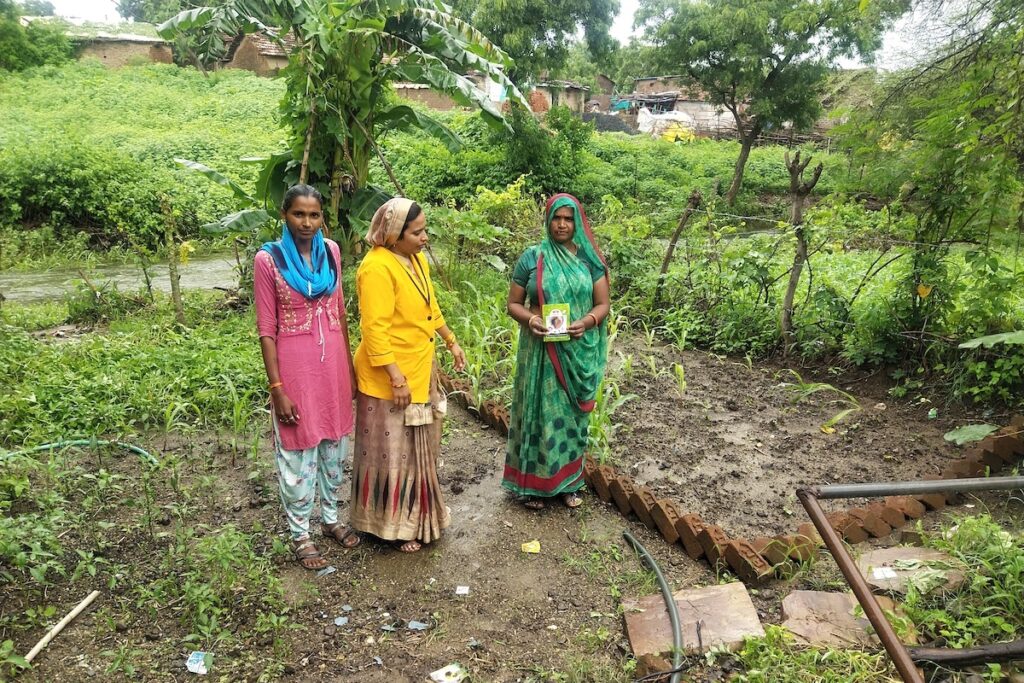
In this context, the policy brief calls upon G20 countries to:
- Invest in agroecological farming methods with farmers as key stakeholders, foster collaboration between states, NGOs, and local communities to implement such initiatives and integrate them into existing schemes
- Promote integrated crop-livestock systems to enable smallholders access to diversified diets and income and enhanced soil fertility
- Raise awareness about the importance of agrobiodiversity for nutrition and food security, integrate nutrition education into agri-extension services and outreach programmes
- Coordinate policy efforts across agricultural, environmental, and nutrition sectors to incentivize regenerative farming practices, conserve biodiversity and promote healthy diets
The agrobiodiversity-focused activities have improved the nutritional status and income of more than 22,500 smallholder coffee producers in southern highlands of Tanzania, which is among the regions with the highest level of malnutrition prevalence in the country.
Godlove NDeringo, Senior Project Manager, Solidaridad East & Central Africa (Tanzania)
Launch of the T20 Brief
Solidaridad and ORF officially launched the brief on 11 November 2024 at the Regenerative Agriculture and Agrobiodiversity for Food Security in Africa and India — Empowering Smallholders through Markets Approaches conference in New Delhi, India.
The conference featured two panel discussions on Regenerative Agriculture: A Case for Small and Marginalized Farmers and Reaping a Rich Harvest: On-farm Success Stories from Africa and India.
Researchers and scientists, policy advocates and industry leaders spoke on a range of issues — from challenges in adopting and implementing agrobiodiverse approaches in agriculture, market pressures and volatility in different commodity supply chains, to the need for a holistic approach to drive sustainability.
Shatadru Chattopadhayay, Managing Director, Solidaridad Asia remarks that, “Smallholders face issues on multiple fronts: ecological degradation, land degradation, water crisis, and even international green legislations that can potentially exclude numerous small farmers in Africa and India … There is a need for a uniform baseline to define regenerative agriculture. A ‘race to the bottom’ must be avoided at all costs. Furthermore, reward systems for farmers practising regenerative agriculture should be inclusive.”

